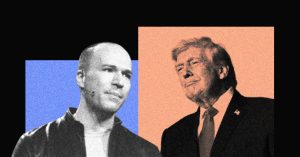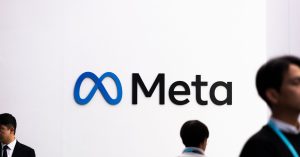The creative community across the globe descends on the South of France year after year to celebrate the best work in our field and negotiate the future of our industry at the Cannes Lions International Festival of Creativity. Without question, the hottest topic of the week was artificial intelligence. No matter where you found yourself along the two kilometer stretch of the Promenade de la Croisette, there was sure to be some utterance of the phrase “AI” in a keynote speech, on a panel, or in discussion over rosé.
A constant refrain throughout the discourse among many creative leaders was the inherent trepidation of the technology’s role in creativity. This struck me as odd because creativity has always evolved with the advent of new technology, from the use of photoshop to render new images to leveraging the power of CGI to create immersive worlds. However, AI seems to have the creative community in a chokehold at the moment (see the Hollywood Writers’ strike and the fake Kanye And Drake songs). But this isn’t the first time we’ve been here, so there must be case studies that we can look at into in hopes of providing a greater perspective about the relationship between AI and creativity, and what it might mean for our industry. For me, hip- hop provides a useful illustration.
Hip hop music began in the late 1970s, in the housing projects of a deindustrialized South Bronx. Black and Latino youths in the community used their ingenuity to repurpose turntables and rewire sound amplifications to give birth to a new genre of music and lay the foundation to a corresponding culture. Although hip hop music is the most widely consumed music genre in the country today, its origination was met with much resistance from the creative community.
The fact that the primary musical instrumentation of hip hop was sampling, where musical elements are borrowed from other artists’ compositions, looped, and spoken over, the music industry didn’t even consider hip hop a legitimate form of music. The critiques were far reaching. Is it music if their practitioners are just “talking” over preexisting sound beds? If its foundation is built on someone’s creative work can its production even be considered creative?
The opposition was unyielding. Even with the introduction of new musical elements like drum machines and melodic scratches, hip hop as an art form faced decades of criticism and resistance before it was embraced by the industry. The parallels to generative AI are evident.
Generative AI is an artificial intelligence system that can create new visual, audio, and text-based media in response to a given prompt. Like the early days of hip hop music, the output of AI is based on preexisting content. However, the ability to curate and rework these foundational elements can lead to rich creative work. Hip hop music doesn’t leave its samples untouched. It adds new contributions to the pre-existing work to make something altogether new. AI works similarly, not only through the technology itself but also through the incorporation of new ideas by the user. Would anyone ever argue that Q-Tip, Dr. Dre, or Jay Dilla were not creatives because of their reliance on sampling for the construction of their works? Of course not, that would be preposterous. Similarly, how can we question the merits of works that have been assisted—not fully constructed—by generative AI?
Through this lens, I find both comfort and optimism in the role that AI technology can play in creativity. The use of samples in the creation of music is not the same as actually conceiving the original work and playing the instruments, but its work is additive to the creative cannon. Likewise, the use of AI to create new text is not the same as conceiving the original work but its contribution is also additive to the creative cannon. They aren’t the same, but they both have merit.
Hip hop music provides such a useful case study for this examination because not only are there parallels between hip hop and AI from a creative perspective, but hip hop also addresses the regulatory implication of the technology as well. As hip hop ascended, so did the lawsuits from rights-holders of the sampled works that resided in hip hop music. These original creators were cited in the new works and compensated for their contribution to it. It took time for sample clearances—and the methodologies necessary to acquire them—to become commonplace, but they did.
We should expect the same with the use of AI technologies for the creation of new works, just as we’ve seen with user-generated content and other new inputs to creative works. Citations and compensation have to be thought through and worked out. The same goes with transparency.
There was once a time when drummers looked down on the use of drum machines as a means of providing rhythm to a recorded composition, but this technology enabled the production of a seemingly endless stream of creative works that we hold dear to this very day. We don’t credit drum machine programmers as drummers, but their work is validated. Drum machines aren’t the same as playing drums, but its use is additive. It requires different skills, so we should address it as such. When creatives use generative AI for the construction of their work, perhaps there should be a footnote that discloses this fact. Whatever the case, these are the conversations we should be having about AI, not a debate about its merit.
As hip hop observes its 50th anniversary, it’s hard to believe that its value to the creative canon was once doubted. While artificial intelligence finds itself at the focal point of similar discourse today, I can imagine a time when we’ll look back and wonder how its value could have ever been doubted, much like when we reflect on the detractions about the internet. I suppose it shouldn’t be much of a surprise that AI is being met with such resistance as we have always resisted change.
Even the Greek philosophers pushed against the written word, arguing that it would breed forgetfulness in the souls of learners. But I get it, change is hard, and its inherent uncertainty is scary. As the comic writer, Rick Remember asserts, “You always romanticize the past as soon as the future begins to frighten you.” So perhaps we should approach our present conversations about AI with an eye toward optimization and a willingness to embrace the possibilities to make way for new creative methods.
I don’t know about you, but I don’t want to imagine a world where De La Soul’s Three Feet High and Raising never existed because it was built on the foundation of pre-existing work—ironically, work that was likely inspired by other creatives, no doubt.
Read the full article here










